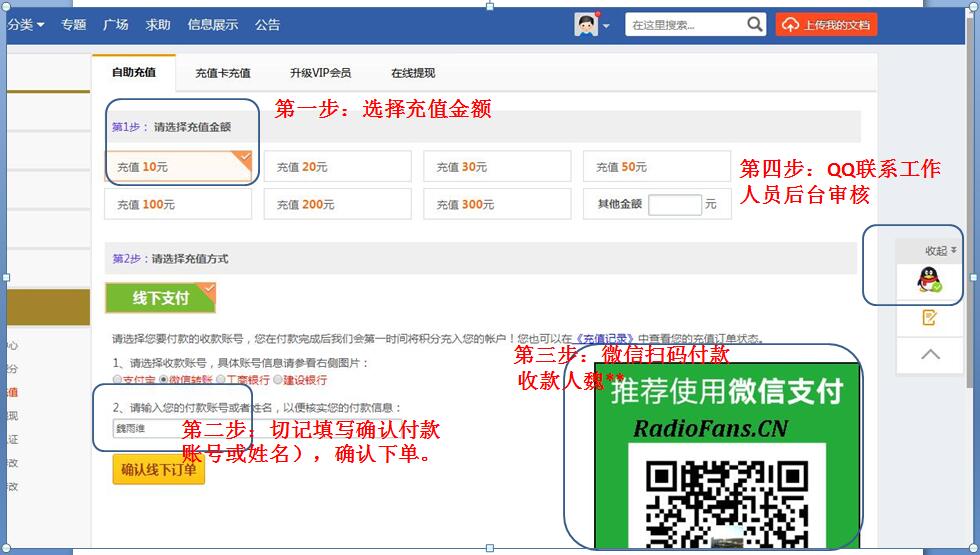《AustralianMonitor-DCM500-pwr-sm维修电路图 手册.pdf》由会员分享,可在线阅读,更多相关《AustralianMonitor-DCM500-pwr-sm维修电路图 手册.pdf(21页珍藏版)》请在收音机爱好者资料库上搜索。
1、 DCM500 Service Manual Product Description Set-Up/Test Procedures Component Lists Full Schematics PCB Overlays RadioFans.CN DCM Series Circuit Description The DCM series are power amplifiers designed for commercial installations. They can be used for either low impedance (4 ohm/8 ohm) or constant vo
2、ltage line speakers (100v/70v). These amplifiers can be mounted in a standard 19” equipment rack or they can be used on a shelf or table. The DCM series feature line level input (with parallel output) and are normally used with mixers, mixer amplifiers or other power amplifiers. The DCM series will
3、operate from mains voltage or 24VDC. The DCM series also feature a DC battery trickle charge facility, auto-sensing fan cooling, plus overload, short circuit and over temperature protection. Power Switch This switch controls the switching of AC power to the amplifier. A blue On LED will indicate whe
4、ther the amplifier is switched on or off. This switch will not switch DC power on or off in DC operation. In DC operation mode, the amplifier is always on and the blue power LED will always be illuminated. If both AC and DC voltage supply are connected and the AC power switch is in the off position,
5、 the amplifier will continue to operate normally from the DC supply and the mains fail LED will indicate. Level Control The output level control is located in the centre of the front panel. It is a fully recessed screwdriver adjustable pot. Turning this pot cw will increase the gain of the amplifier
6、. At maximum setting the input sensitivity is 300mV. The amplifier ships from the factory with the sensitivity set to 1V. Amplifier Status Display This VU meter indicates the output level of the amplifier. The sensing for the circuit is taken on the amplifier side of the output transformer. The 0dB
7、level is referenced to 100V. This is an RMS meter, not a peak meter. Protect The protect LED will illuminate when the amplifier cuts out because of either over current or high temperature. The amplifier will switch back on after approx 4 sec for an over current trip. The amplifier will switch back o
8、n after the amplifier has cooled to 60degC for a thermal trip. Limiter The limiter is a hard limiter with an attack time of about 1msec. It is defeatable by removing the jumper on the solder side of the front pcb. This however is not recommended as voltage overload and speaker transformer current sa
9、turation may cause the amplifier to cut out under normal program material. Current Limit and Setup Current limit is controlled by a microprocessor (PIC12C509A). The detection is done by sensing voltage across the emitter resistors. Trimpot P1 on the front pcb is accessible through the hole in the to
10、p right of the chassis return (only visible with the lid off). Turning the trimpot ccw will decrease the point at which the amp cuts out ie the amp will cut out earlier. (P1 resistance is increased.) To set the current limit: 1. Reset the trimpot P1 turning fully clockwise. 2. Connect the amplifier
11、to half its minimum load (10ohm for DCM500, 20ohm for DCM250, 40ohm for DCM120). 3. Run an rms 1kHz sine wave into the amplifier and set the input level so that you read 425mVDC (DCM250/500) or 825mVDC (DCM120) across the emitter resistor, measuring the side which has the higher current (measured as
12、 a voltage across the emitter resistors). 4. Turn the trimpot P1 ccw till the amplifier cuts out. The amplifier is set to the factory default. Thermal and Fan control and Setup RadioFans.CN The thermal cutout and fan is controlled by a microprocessor (PIC12C509A). The temperature is sensed using a 1
13、0k25degC NTC. The fan is normally off and turns on to full speed at 60degC. This temperature is fixed and not adjustable. The thermal cutout temperature is set using the trimpot accessible through the hole in the top left side of the chassis return (only visible with the lid off). Turning the trimpo
14、t cw will decrease the point at which the amp cuts out ie the amp will cut out earlier. Power Amp The power amplifier is a push pull single supply amplifier driven by a class A transformer coupled front end. The drive is provided by HEXFETs (RF9520/9530) into NPN BJTs (TIP35C). When replacing the FE
15、Ts it is recommended that you replace both FETs. The matching of these FETs determines the balancing of the emitter currents in the output devices. For optimum performance the emitter currents in each side should match to within 30% of each other. Bias Setup The amplifier is set with a bais setting
16、of 1mV measured across the emitter resitors. Bias is set using the trimpots located on the power pcbs on each side of the amplifier. Turning the trimpots cw increases the bias. If the HEXFETs have been replaced the resistor in series with the pot may need to be changed. Use a lower value resistor if
17、 the bias cannot be turned off or a higher value if the bias cannot be turn on. AC Power Inlet The operating voltage is 230/240 VAC 50 Hz. The 3 pin IEC power inlet is located on the bottom left of the rear panel and accepts a standard mains power lead fitted with an IEC connector. Before plugging i
18、n a power lead, please check the rear panel of the amplifier to ensure that the voltage switch is set correctly for your part of the world. The inlet is equipped with an in-built AC fuse containing the rated fuse and a spare. 24 Volt DC Power Inlet The DCM series feature optional 24VDC power to run
19、off a battery back-up if required. This is connected via the rear binding posts. The front panel Power Switch will not switch DC power on or off in DC operation. In this mode the amplifier is always on. The trickle charge resistor across the diode is a 47ohm/5watt wire wound resistor. The maximum tr
20、ickle current is 300mA supplied from internal 35V rails. 230V/240V Slide Switch The operating voltage of the amplifier is user selectable between 230V and 240V via a slide switch located on the center of the rear panel. This switch should be set to match the AC voltage of your country. The mains tra
21、nsformer is wound with a 230V winding plus a 10V winding internally connected. Speaker Output Terminal Strip The screw terminals located on the top left of the rear panel allow access to the direct speaker outputs of the amplifier. Reading from left to right the terminals are: COM Common or “-” for
22、low impedance speaker loads (4 or 8 ohms) 4 Positive “+” for 4 ohm speaker loads (use with common) 8 Positive “+” for 8 ohm speaker loads (use with common) DCM120 only COM Common or “-” for 70v or100v speaker loads 70 Positive “+” for 70v line speaker loads (use with common) DCM120/500 only 100 Posi
23、tive “+” for 100v line speaker loads (use with common) Please ensure that the correct “Common” is used. Low impedance and 70/100v loads can be used simultaneously but please pay careful attention to the overall speaker load. Note: The minimum impedance (or maximum load) at 100 volt line should be no
24、 less than RadioFans.CN DCM120 80 ohms DCM250 40 ohms DCM500 20 ohms XLR Audio Input and Parallel Output The DCM series includes both male and female 3 pin XLR connectors per channel. While the female is normally used as the input to the amplifier, both XLRs are connected in parallel so either will
- 配套讲稿:
如PPT文件的首页显示word图标,表示该PPT已包含配套word讲稿。双击word图标可打开word文档。
- 特殊限制:
部分文档作品中含有的国旗、国徽等图片,仅作为作品整体效果示例展示,禁止商用。设计者仅对作品中独创性部分享有著作权。
- 关 键 词:
- AustralianMonitor-DCM500-pwr-sm维修电路图 手册 AustralianMonitor DCM500 pwr sm 维修 电路图
 收音机爱好者资料库所有资源均是用户自行上传分享,仅供网友学习交流,未经上传用户书面授权,请勿作他用。
收音机爱好者资料库所有资源均是用户自行上传分享,仅供网友学习交流,未经上传用户书面授权,请勿作他用。
 AustralianMonitor-DCM500-pwr-sm维修电路图 手册.pdf
AustralianMonitor-DCM500-pwr-sm维修电路图 手册.pdf



 Crown-XLS202-pwr-sch维修电路图 手册.pdf
Crown-XLS202-pwr-sch维修电路图 手册.pdf


